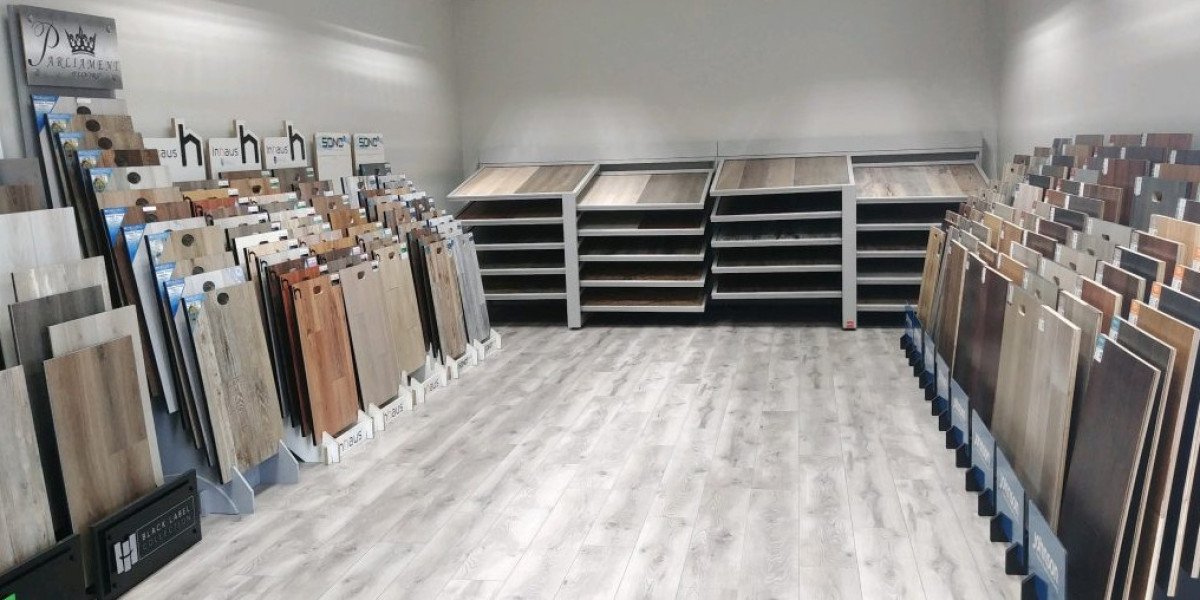Whether you're renovating your home, updating a commercial space, or just looking for a flooring refresh, finding the right flooring store is crucial. With a variety of options for every style and budget, a good flooring store can guide you through choosing materials, colors, and designs to suit your space perfectly. Here’s everything you need to know about flooring stores in San Francisco, what they offer, and tips for choosing the best one for your needs.
1. Types of Flooring Stores
Flooring stores range from specialized boutiques to large home improvement centers. Here are some common types:
Big-Box Retailers: Large chains like Home Depot and Lowe’s offer a vast selection of flooring materials, from tile to hardwood. These stores often have budget-friendly options and may provide installation services.
Specialty Flooring Stores: These stores focus specifically on flooring, offering a wide variety of materials such as carpet, vinyl, laminate, hardwood, and eco-friendly options. They often have knowledgeable staff who specialize in flooring and can offer tailored advice.
Luxury Flooring Boutiques: These stores cater to high-end customers looking for premium flooring options like custom tiles, unique hardwoods, or designer carpets. While they may be more expensive, they usually provide personalized service and exclusive materials.
Online Flooring Retailers: Many customers are now shopping online for flooring. Online stores like Wayfair and Floor & Decor offer a wide selection and competitive prices, often with detailed product descriptions, customer reviews, and sometimes even free samples.
2. What to Look for in a Flooring Store
When choosing a flooring store, consider the following factors:
Variety of Materials: Look for a store that offers a wide selection of materials, from hardwood and carpet to luxury vinyl and tile. This variety allows you to compare options side-by-side and make the best choice for your space and budget.
Product Quality: High-quality flooring will last longer and look better over time. Check reviews, ask about warranties, and look for brands known for durability.
Knowledgeable Staff: Knowledgeable staff can make a significant difference, especially if you're unsure of the best flooring for your needs. Look for stores with experienced staff who can answer questions, recommend products, and offer insights into the latest trends.
Installation Services: Many flooring stores provide installation services, often at a discounted rate if you purchase flooring from them. This can save time and effort, as they may have experienced installers familiar with the specific flooring materials they sell.
Customer Reviews and Reputation: Check online reviews or ask for recommendations from friends or family. Stores with good reviews and a reputation for excellent customer service are more likely to provide a satisfying experience.
3. Types of Flooring and Their Benefits
Each flooring type has its advantages, and a good flooring store will help you understand which material suits your lifestyle, budget, and aesthetic preferences:
Hardwood Flooring: Known for its timeless look and durability, hardwood is ideal for living rooms, dining rooms, and bedrooms. However, it requires regular maintenance and may not be suitable for areas with high moisture.
Laminate Flooring: This budget-friendly option mimics the appearance of hardwood or stone at a fraction of the cost. Laminate is durable and easy to maintain, making it a popular choice for families.
Vinyl and Luxury Vinyl Tile (LVT): Known for its resilience and water resistance, vinyl is a versatile option suitable for kitchens, bathrooms, and basements. Luxury vinyl offers a high-end look that closely resembles hardwood or stone.
Tile Flooring: Tile is durable, water-resistant, and comes in countless designs and colors. It’s ideal for bathrooms, kitchens, and entryways but can be cold underfoot, so you might want to consider heated options in colder climates.
Carpet Flooring: Soft, comfortable, and available in many styles, carpet is great for bedrooms and living areas. However, it can be harder to maintain than hard-surface flooring.
4. Top Tips for Buying Flooring
Measure Accurately: Flooring is typically priced by the square foot, so knowing the exact measurements of the area you need to cover is essential. Most stores offer measurement services to ensure accuracy.
Request Samples: Many stores provide free or low-cost samples. Bring samples home to see how they look in your lighting and against your walls and furniture.
Consider Maintenance Needs: Some flooring types require more upkeep than others. Hardwood, for example, needs regular sealing and may scratch easily, while vinyl and laminate are lower maintenance.
Look for Eco-Friendly Options: If sustainability is important to you, look for stores that offer eco-friendly materials like bamboo, cork, or FSC-certified hardwood.
Check for Warranties and Returns: Make sure you understand the store’s warranty and return policies. Flooring is an investment, so it’s important to know you’re covered if any issues arise.
5. The Shopping Experience at a Flooring Store
Shopping at a flooring store can be an enjoyable experience if you know what to expect:
Browsing and Consultations: A good store will allow you to browse at your own pace, but knowledgeable staff will be available for consultations when you’re ready.
Design Assistance: Many stores offer design consultations to help you choose flooring that complements your decor. Some even provide digital tools that allow you to visualize how different types of flooring will look in your home.
In-Store Samples and Mockups: Seeing flooring samples in person can help you get a better sense of color, texture, and quality than shopping online. Some stores even have mockups or floor displays that allow you to see larger sections of the flooring laid out.
Conclusion
Choosing the right flooring store can make your renovation project easier, more enjoyable, and less stressful. From selecting the perfect materials to ensuring quality installation, a reputable flooring store can guide you through every step. Remember to consider variety, quality, customer service, and your specific needs when making your decision. With the right flooring store, you’ll be well on your way to creating a beautiful, functional space that fits your style and lifestyle.







